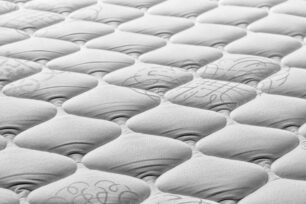
In December of 2022, the Environment Agency introduced new legislation to regulate the collection and disposal of Persistent Organic Pollutants (colloquially referred to as POPs). According to the new rules, substances or materials that contain these pollutants must me incinerated and cannot be recycled or disposed of in any other way. While proper waste disposal has always been important when it comes to POPs, these new rules were devised to further reduce the risks associated with exposure to these hazardous materials. We created this short guide to help our customers understand what POPs are and what can be done to reduce their environmental occurrence.
What are POPs?
Persistent organic pollutants are harmful chemicals that do not break down or decompose naturally, which means they can remain in the environment for a long time. They can accumulate in living organisms (including humans) over time, which can cause serious health complications (including cancer and reproductive disorders). Disposing of these materials in a safe and sustainable way is thus essential to prevent further damage to the environment and to human health.
POPs are commonly found in electronics, construction materials, and industrial products and waste. Unregulated dumping and negligent disposal of these materials leads to them being released into the environment and tainting our soil, water, and air. Given the fact that we need these environmental mediums to survive, the severity of the crisis becomes clear.
The Prevalence Of POPs In Everyday Waste
Persistent organic pollutants are a lot more common than people realise. They are present in everyday products, including pesticides, electronics, and furniture. The list below demonstrates how common these pollutants are and in which area of your home they can be found.
- Living room (sofas, armchairs, bean bags, gaming consoles)
- Kitchen (non-stick cookware, bug spray and other pesticides, appliances)
- Office (ink cartridges, office furniture, office equipment and electronics)
- Bedroom (mattresses, carpets, air fresheners)
- Bathroom (cosmetics, perfumes, other personal care products)
Some of the most common chemicals and pollutants in the items mentioned above are polychlorinated biphenyls (PCBs), chlordane and dichloro-diphenyl-trichloroethane (DDT), polychlorinated dibenzo-p-dioxins (PCDDs) and polychlorinated dibenzofurans (PCDFs), and brominated flame retardants (BFRs).
What You Can Do
While we handle the collection, treatment, and disposal of waste, it is still beneficial to educate customers on the importance of proper POPs disposal, as it can help us keep those substances out of the environment. The steps below indicate the most useful measures you can implement yourself to streamline the waste management process and to reduce the likelihood of any contaminant breaches.
- Separate your waste streams. Separating your waste into different categories (like kitchen waste, electronics, and construction waste) makes it easier to identify potential POPs-containing materials, which in turn makes it easier to dispose of them in the correct manner. Separating POPs-containing waste from other waste is also a requirement according to the Environmental Agency’s new bylaws.
- Follow local waste management regulations. Your local government body will periodically update bylaws and release new regulations regarding waste disposal. Make sure you familiarise yourself with these regulations and do your best to adhere to them.
- Use accredited waste disposal companies. While it is important to adhere to waste management protocols, it is often advisable to rely on the expertise of licensed or accredited waste disposal companies, such as PP O’Connor. These companies possess the knowledge and experience to implement the most effective waste disposal methods in accordance with legal requirements, ensuring the proper disposal of all waste materials.
- Have your POPs-containing waste incinerated. Any waste (whether mixed or separated) that contains prohibited chemicals or materials needs to be disposed of by way of incineration (either by municipal facilities or authorised hazardous waste disposal companies). If such facilities are not readily available, you need to store your POPs-containing waste until such time as you can dispose of them in the prescribed manner.
Placing anything in your skip that contains persistent organic pollutants will incur an additional charge of £60 per item (up to a maximum of 10 items per skip), but you can still do so to dispose of them safely. The new regulations require that you include a waste transfer note that describes the materials containing POPs (including the relevant chemicals), for example: “electronic waste containing POPs”.
Working together is the key to reducing the prevalence of POPs in the environment and sensitive ecological areas. PP O’Connor is committed to safe and responsible waste management and we encourage our clients to also do their part by adopting sustainable waste practices.
Contact us for further information.




